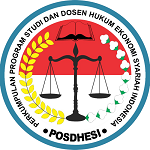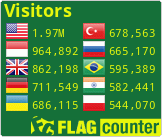Strengthening Sharia Economic Law in Indonesia: Challenges and Strategic Approaches Amidst Global Economic Dominance
DOI:
https://doi.org/10.32332/muamalah.v3i1.8521Keywords:
Sharia-Based Economic System, Economic Globalization, Maslahah Mursalah, Sharia Economic Law IndonesiaAbstract
In the current context of economic globalization, Indonesia's Sharia-based economic system faces significant challenges in developing itself amidst the dominance of capitalist and socialist economic systems. This article aims to analyze the challenges faced by Indonesia's Sharia-based economic system and explore the maslahah mursalah approach as a conceptual framework to address these challenges. Through this approach, the article presents several strategic steps to strengthen the position of Sharia economics in Indonesia, including efforts to maintain the identity of Sharia economic law in a global environment dominated by capitalism, gathering empirical evidence on the advantages of Sharia economics, and increasing dialogue and collaboration between the academic community and practitioners of Sharia economics. This study fills the research gap by providing empirical comparative studies on the advantages of Sharia economics over capitalist and socialist systems, offering strategic solutions for practical implementation, and emphasizing the importance of academic-practitioner collaboration. This research's novelty is applying the maslahah mursalah conceptual framework, strategically reinforcing Sharia economic law identity, and enhancing academic-practitioner interaction. This article contributes to understanding the potential and challenges of developing Sharia economic law in Indonesia, offering new perspectives and concrete steps to strengthen Sharia economics in a dynamic global context. The findings enrich theoretical discussions and provide practical solutions to bolster the Sharia-based economic system amidst the prevailing global economic paradigms.
Downloads
Downloads
Published
Issue
Section
License
Copyright (c) 2024 Adinda Yuliana Musthofa, Fayiz Afif, Karimuddin Karimuddin

This work is licensed under a Creative Commons Attribution-ShareAlike 4.0 International License.
All articles in the Mu'amalah: Jurnal Hukum Ekonomi Syariah can be disseminated on condition that they still include the identity of the article and the source (Mu'amalah). The publisher is not responsible for the contents of the article. The content of the article is the sole responsibility of the author.
Authors who publish this subject agree to the following terms:
First, the Authors retain copyright and grant the journal rights from the first publication with the work simultaneously licensed under a Creative Commons Attribution-ShareAlike 4.0 International License that allows others to share the work with an acknowledgement of the work's authorship and initial publication in this journal.
Secondly, the authors can enter into a separate or an acknowledgement of its initial (e.g., post-institutional repository or publish it in a book) publication in this journal.
![]()
Third, the authors are permitted and encouraged to post their work online (e.g., in institutional repositories or on their website) before publishing work is cited.








